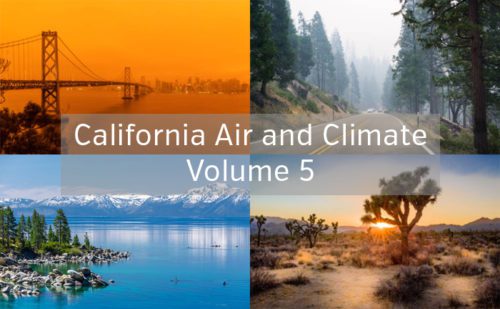California Air and Climate: CARB and San Joaquin Valley APCD Advance AB 617; Bay Area AQMD Targets Methane
November 2018
California Air and Climate: Vol. 5
CARB Adopts Blueprint for AB 617 Community Air Protection Program
This fall, the California Air Resources Board (“CARB”) adopted its first measures under the Community Air Protection Program (“CAPP”), which focuses on reducing exposure to air pollution in the most vulnerable communities in California. CAPP is a result of Assembly Bill (“AB”) 617 (C. Garcia, Chapter 136, Statutes of 2017) and also implements other clean air initiatives such as community air monitoring, community emissions reduction programs, as well as funding to address localized air pollution by using cleaner technologies. Most recently, CARB announced its adoption of a blueprint under CAPP that sets forth how the Board will work with local residents, air districts and other partners to identify air quality problems, develop solutions and track progress under CAPP. CARB also identified the first 10 communities selected under the program that face disproportionate impacts from multiple sources of air pollution. Those 10 communities are Richmond, West Oakland, Calexico/El Centro/Heber, South Sacramento/Florin, Portside Environmental Justice Neighborhoods (Barrio Logan, West National City, Logan Heights, Sherman Heights), Shafter, South Central Fresno, East Los Angeles Neighborhoods, Muscoy/San Bernardino, and Wilmington/West Long Beach/Carson. Going forward, these communities will be targeted for focused actions to improve air quality, which may include air pollution monitoring systems, cutting emissions from local pollution sources (both mobile and stationary sources), new regulatory and enforcement actions, facility risk-reduction audits, enhanced air quality permitting requirements, and various incentive programs.
San Joaquin Valley APCD Identifies Rules for BARCT Review
On November 1, the San Joaquin Valley Air Pollution Control District (“SJVAPCD”) released a proposed list of rules that it will review to determine whether amendments are necessary to implement Best Available Retrofit Control Technology (“BARCT”). AB 617 requires air districts in non-attainment areas to develop an implementation schedule to accelerate adoption of BARCT for conventional air pollutants from sources subject to the state’s cap-and-trade program. Any necessary BARCT rule adoptions must take place prior to December 31, 2023. SJVAPCD has identified 15 rules that are applicable to cap-and-trade facilities and require further review to determine if amendments are necessary to implement BARCT. The list includes rules applicable to refineries, oil and gas production operations, gasoline transfer and storage, wine fermentation and storage tanks, asphalt paving, coatings, composting, and internal combustion engines. SJVAPCD is accepting public comments on the proposed implementation schedule through November 15 and plans to adopt the schedule at its December 20 board meeting.
Bay Area AQMD Announces Development of Methane Rules
Also on November 1, the Bay Area Air Quality Management District (“BAAQMD”) held the first of a series of workshops to discuss the development of a suite of rules to regulate methane emissions from stationary sources. These proposed rules are part of the BAAQMD’s plan to reduce Bay Area greenhouse gas emissions consistent with state goals. California air districts are prohibited from regulating CO2 (but not methane) emissions from facilities subject to the state cap-and-trade program. BAAQMD will initially develop three rules covering: 1) significant methane releases; 2) organic material handling; and 3) composting operations. In the future, BAAQMD plans to develop additional methane rules for wastewater treatment plants and solid waste disposal facilities. The proposed significant methane release rule (Rule 13-1) will be applicable to releases greater than 10,000 ppm from any source. BAAQMD will hold workshops this fall for Rule 13-1 and plans to adopt the rule in early 2019. Workshops for the proposed organic material handling and composting rules will be held in early 2019, with planned adoption by the end of 2019.

